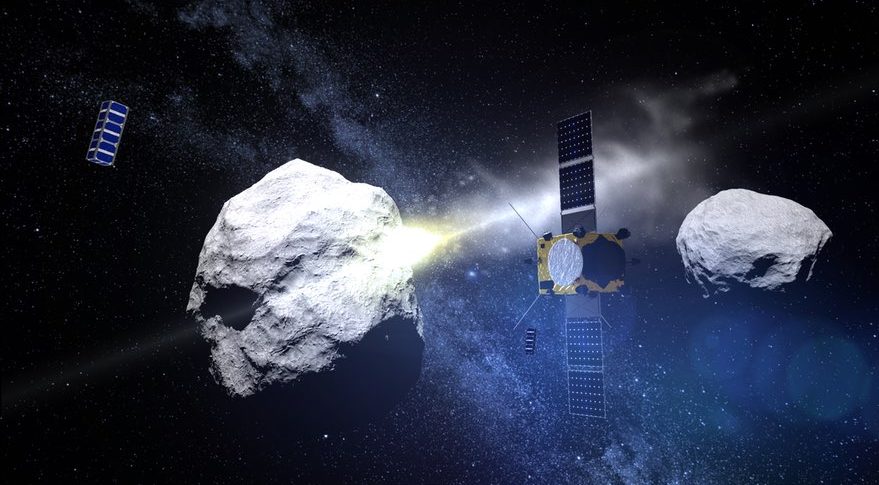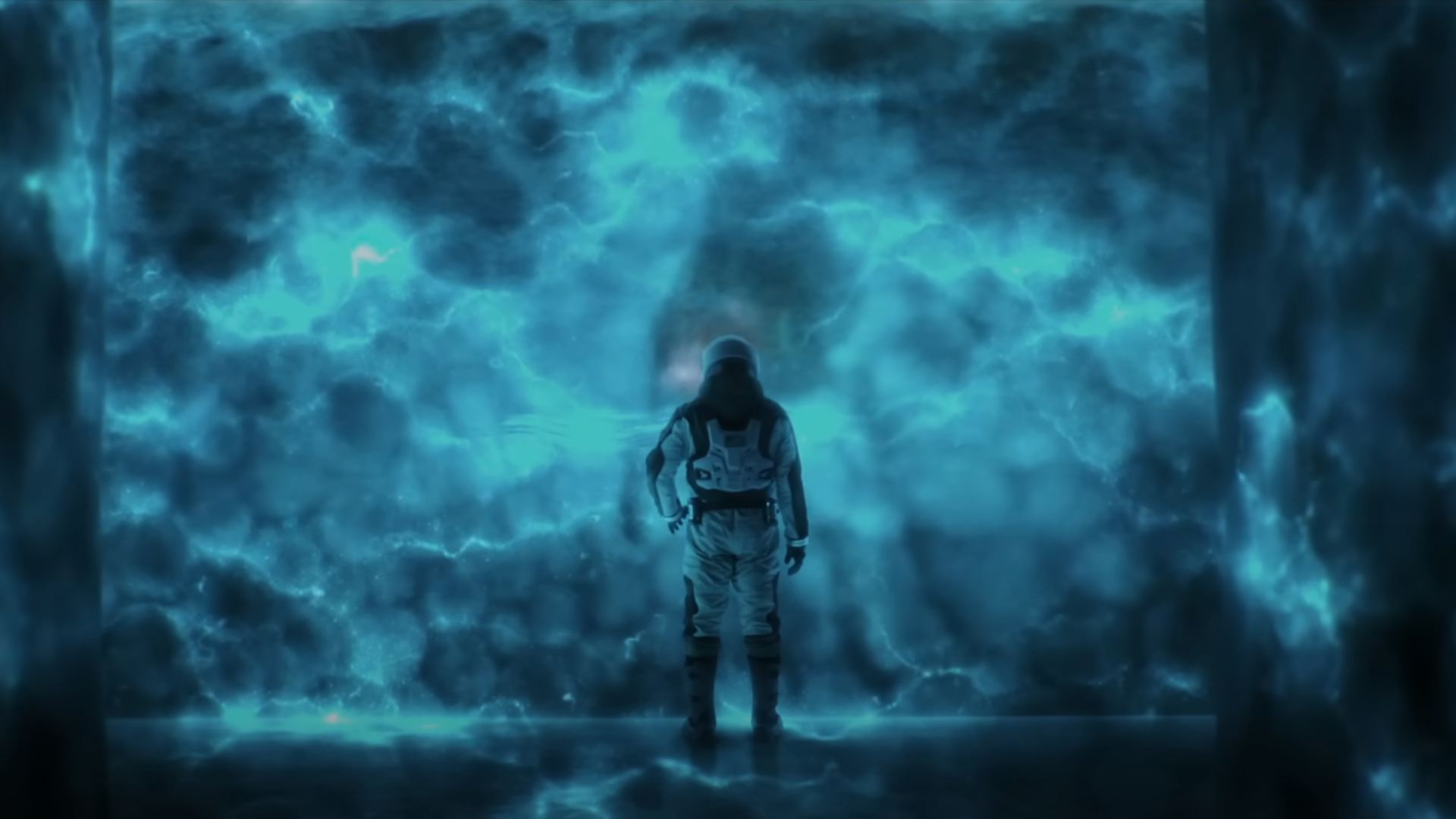NASA Presses Ahead With Asteroid Mission Despite ESA Funding Decision

WASHINGTON — Scientists involved with a proposed NASA mission to a near Earth asteroid say their work is not affected, for now, by a decision by the European Space Agency earlier this month not to fund a companion spacecraft.
NASA and ESA had been cooperating on a joint effort known as the Asteroid Impact and Deflection Assessment (AIDA). That mission concept involved two spacecraft: the Double Asteroid Redirection Test (DART), to be developed by NASA, and ESA's Asteroid Impact Mission (AIM).
The AIDA concept involved sending AIM to Didymos, a near Earth asteroid about 800 meters in diameter that has a moonlet, informally known as Didymoon, about 150 meters across orbiting it. AIM, launched in October 2020 and arriving in May 2022, would study Didymos and its moonlet prior to the arrival of DART. [Potentially Dangerous Asteroids (Images)]
DART, launched in December 2020 and powered by a solar electric propulsion system, would then collide with Didymos in October 2022. AIM would observe the collision and its aftermath, including measuring the deflection in the moonlet's orbit caused by the collision. That collision is intended to test a concept called a kinetic impactor that could be used to deflect a threatening asteroid.
AIDA suffered a setback, though, when ESA member states declined to fund AIM at the agency's ministerial meeting in Switzerland Dec. 2. ESA Director General Jan Woerner, speaking at a Space Transportation Association luncheon here Dec. 9, said that in discussions among member nations, Germany pledged 35 million euros, less than the expected 60 million euros, then withdrew the funding entirely later in the negotiations.
That loss of funding put AIM below the threshold that would allow the program to continue. "And then, unfortunately, I had to cancel the program at that moment," Woerner said.
That decision has not affected work on DART, which is in the midst of a Phase A study led by the Applied Physics Laboratory (APL) of Johns Hopkins University. "DART is actually continuing," said Andrew Cheng of APL, the AIDA coordination lead for the mission, during a Dec. 12 session of the Fall Meeting of the American Geophysical Union (AGU) in San Francisco. "The NASA approval decision will be in March 2017, so we're funded through then."
Breaking space news, the latest updates on rocket launches, skywatching events and more!
Cheng said he believed that ESA would find some way to restore AIM despite the lack of funding for the mission at the ministerial meeting. "ESA and the ESA director general very much have the intention of continuing AIM and reformulating it in some form," he said.
Woerner, at the luncheon, said he was trying to revive AIM. "I'm still working on it at the political level, and I see some chances that we can still do it," he said. "We have a very tight calendar for the launch, but we have some weeks to rescue it, and I'm working on it."
Even if ESA is not able to revive AIM, scientists said that DART alone can still carry out its mission to demonstrate kinetic impacts. That would require observations by ground-based telescopes to monitor the deflection in Didymoon's orbit after the impact.
"DART was designed to be independent of AIM," said Joseph Nuth, senior scientist for primitive bodies at NASA's Goddard Space Flight Center, at the AGU meeting Dec. 12. "AIM makes it better, but all the information can be derived from ground-based instruments."
Woerner hopes AIM can still be a part of AIDA. "I think AIM is not lost," he said. "I'm convinced that this is a good mission. It's a cheap mission, but it's a good one."
Debra Werner contributed to this story from San Francisco.
This story was provided by SpaceNews, dedicated to covering all aspects of the space industry.
Join our Space Forums to keep talking space on the latest missions, night sky and more! And if you have a news tip, correction or comment, let us know at: community@space.com.

Jeff Foust is a Senior Staff Writer at SpaceNews, a space industry news magazine and website, where he writes about space policy, commercial spaceflight and other aerospace industry topics. Jeff has a Ph.D. in planetary sciences from the Massachusetts Institute of Technology and earned a bachelor's degree in geophysics and planetary science from the California Institute of Technology. You can see Jeff's latest projects by following him on Twitter.

